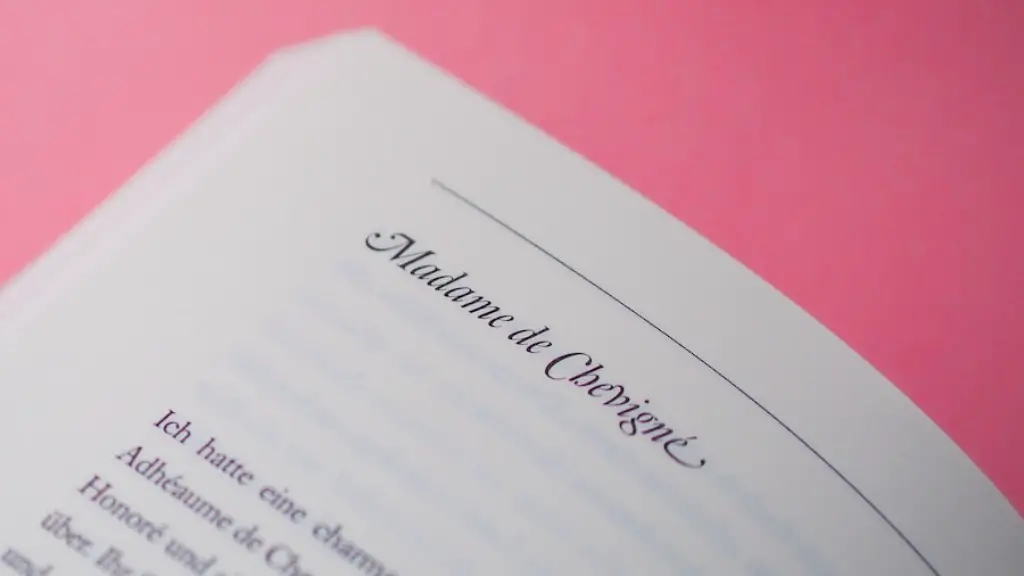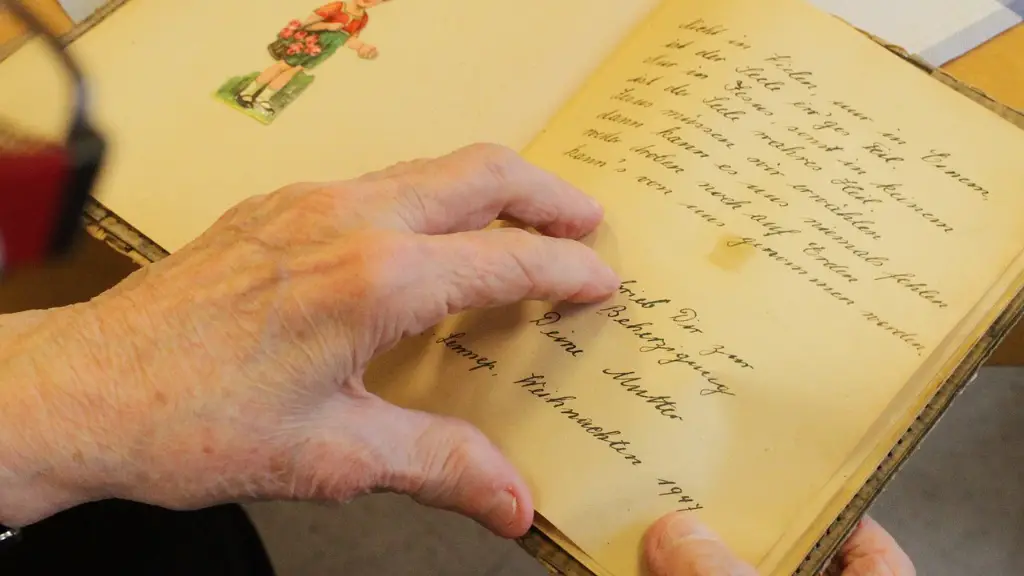Denotation in poetry is a poetic device used by poets to add interesting and meaningful words to their works. It’s an essential element of literary works, tying them together as an artistic whole that resonates with the reader. Denotation is the literal meaning of words, while connotation is the symbolic or implied meaning. In poetry, denotation carries an additional level of symbolism or meaning beyond the literal definitions of words.
Literary devices are used to evoke emotions and images in pieces of writing. Denotation is important for conveying the intended message in the poem. For example, when a poet uses the term “moon,” the denotation carries with it different associations. A reader might think of a night sky, the light of the moon, or the reflection of moonlight on a body of water. All of these denotations convey a certain emotion or connotation that the poet intended.
Denotation in poetry is also often used for its literal meaning as part of a metaphor. For example, in the poem “The Road Not Taken,” by Robert Frost, two roads in a wood are a metaphor for life’s choices. The denotation of the two roads is a literal representation of decisions one has to make. These denotations are important to the meaning of the poem, but they also represent a deeper underlying message.
Poets often choose words with multiple denotations and ambiguity. This adds to the complexity of their poem and allows the poet to express their feelings, thoughts, and views. The denotation of a word adds to the overall meaning of the poem, as it can represent multiple deep and hidden feelings.
In addition to poetic devices, denotation has its place in literary criticism. Scholars analyze works of literature, looking at words, phrases and sentences for literal and figurative meanings. Denotation is used in literary criticism to help inform readers of the literal meaning of a term, phrase or passage, as well as the deeper implied meaning. This type of analysis helps readers to gain a better understanding of the poem and the issues presented in it.
Overall, denotation in poetry is an important tool for conveying messages, meanings and imagery. Poets use denotation to create depth and complexity, while literary critics use it to analyze works. Denotation is used to explore deeper meanings and feelings, making it an essential element of literature.
Importance of denotation in poetry
Denotation is an important part of poetry and represents the literal meanings of words and phrases. Denotation can help to enhance the emotional impact of a poem, as poets use words with multiple denotations and symbolism to add complexity and convey deeper meanings. Denotation can also represent the emotional context of the poem and add to the overall meaning. Thus, it is a tool that poets use to create depth and complexity.
Denotation is also a form of literary criticism, where scholars analyze and interpret works of literature through its words, phrases and sentences. Denotation helps readers to gain a better understanding of the poem and its underlying message. This type of analysis is a powerful tool that can help readers to interpret and appreciate works of literature to a greater degree.
In addition, denotation can be used to bring depth and nuance to a poem. Poets use denotation to express feelings, thoughts and views in a creative way that adds to the overall meaning of the poem. By using words with multiple denotations and ambiguity, poets can create poems that convey more than the literal meaning.
Denotation is a powerful device in poetry, and can help readers and scholars to interpret and appreciate the poem’s deeper messages. Through denotation, poems can become more meaningful, vivid and impactful, leading to a more fulfilling reading experience.
Advantages of denotation in poetry
Denotation in poetry is an essential tool for poets to convey ideas, meanings and emotions in a creative and meaningful way. It adds a layer of complexity and subtlety to poems, allowing poets to explore deeper meanings and feelings. This can help readers to interpret and gain a greater appreciation of the poem.
Denotation has other advantages in poetry as well. It allows poets to express their thoughts and feelings in a creative and unique way, while also conveying a deeper meaning. Thus, poets can use denotation to create a more interesting and meaningful poem, allowing their work to stand out from other poets.
In addition, denotation can add a level of emotion to the poem. Poets use words with different denotations, as well as poetic devices, to create a richer and more vivid experience for readers. This can make the poem more impactful, creating a more meaningful reading experience.
Finally, denotation can help scholars and readers to gain a better understanding of a poem. By analyzing the denotations of words and phrases, scholars can uncover the poem’s deeper message and meaning. Thus, denotation can be used to add a level of nuance to a poem and help scholars to interpret and appreciate works of literature.
Use of denotation in poetry
Poets use denotation in a variety of ways to add complexity and depth to their work. Denotation is often used to create symbols and metaphors in poetry, as well as providing a deeper emotional context to the poem. Words with multiple denotations and ambiguity add to the overall depth and meaning of the poem.
In addition, denotation is used in literary criticism. Scholars analyze works of literature to uncover the deeper meanings and symbols of the poem. By analyzing the denotation of words and phrases, scholars can gain a better understanding of the poem and its underlying message.
Therefore, denotation is a powerful tool for poets to create interesting and meaningful works of literature. By using words with multiple denotations, ambiguity and metaphors, poets can create a more powerful and impactful work that resonates with readers.
Challenges of denotation in poetry
While denotation is a valuable tool for poets, there are some challenges associated with its use. The first challenge is the potential for the poem to become too literal or trite. Poets should be aware of the denotations of the words they are using, as they can be too straightforward and not convey the intended message. To avoid this, poets should be mindful of the denotations of each word and select words that are meaningful, nuanced and convey the poet’s intended message.
Another challenge is the potential for denotation to become too abstract or confusing. Poets should strive to create a clear and meaningful poem, so that the denotation adds to the depth and meaning of the work. Denotation should be used to bring nuance and complexity to the poem, while avoiding abstraction and confusion.
Finally, denotation should be used to enhance the emotional impact of a poem. Poets should use words and phrases with denotations that are meaningful and evoke strong emotions. Denotation should be used to add to the overall emotional context of the poem and add to the deeper meaning of the work.
Extended use of Denotation in Poetry
Denotation can also be used to create a heightened sense of tension or drama in a poem. By using words with multiple denotations and symbolism, poets can evoke powerful imagery and emotions in the reader. This can be used to add a layer of suspense or drama to a poem’s narrative.
Furthermore, denotation can be used to bring out the experience of the poem. Different words have different connotations and associations, which can evoke different emotions. Poets can use this to create a poem that evokes strong emotions and experiences for the reader.
In addition, denotation can be used to represent a larger theme or concept. By using words with multiple denotations, poets can work to convey a broader message or theme in their work. This can be a powerful tool for conveying a deeper meaning in a poem.
Finally, denotation can be used to create a unique reading experience. By using a variety of poetic devices, including denotation, poets can create a unique and meaningful experience for the reader. This can add to the overall impact of the poem and make it more meaningful.





